Hong Kong restaurant owner Jeff* closed one of his two outlets in April after losing money for more than a year because of strict Covid-19 pandemic restrictions.
Announcing the closure on Facebook, the restaurant said: “At this point, we can’t take it any more.” It appealed to patrons to visit the remaining restaurant before it was forced to close too.
Customers showed up right away, and the restaurant had to stop accepting takeout orders to cope with the full house of diners, many of them young faces.
Do you have questions about the biggest topics and trends from around the world? Get the answers with SCMP Knowledge, our new platform of curated content with explainers, FAQs, analyses and infographics brought to you by our award-winning team.
The place was fully booked for the next three days by diners who came for the Asian-inspired fusion dishes, but mainly to show their support.
“We didn’t expect the response to be so enthusiastic,” Jeff told the Post. “It’s undeniable that many came to support us because of our ‘yellow shop’ background.”
Hong Kong protesters plan to boost yellow businesses during mini ‘golden week’
His restaurant is one of thousands in the city that came out in open support of anti-government protests during the months of social unrest in 2019.
They banded together informally as a “yellow economic circle”, attracting customers who were not only protesters, but also anyone who supported the movement.
Another set of businesses in the city were branded “blue”, meaning they were seen to be supporting police, city authorities and Beijing against the protesters. Some, like the Maxim’s Group, Starbucks and grocery chain Best Mart 360, became targets of protesters too.
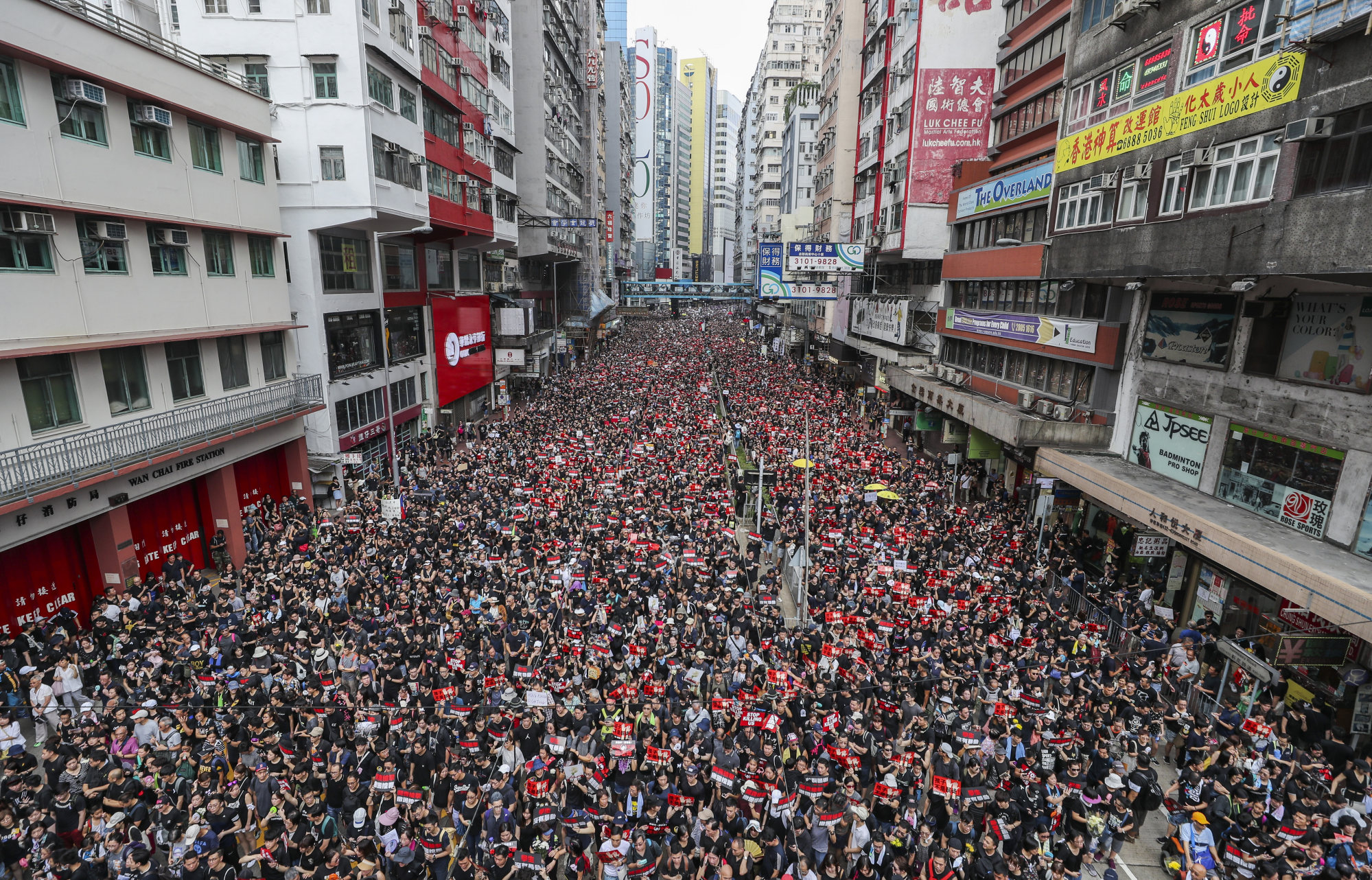
Jeff, who studied mechanical engineering before joining the hospitality industry, opened his first pan-Asian restaurant in 2019. Like many other yellow shops, its interiors were soon plastered with colourful sticky notes on which customers scribbled protest slogans and other messages.
He removed most of them after Beijing imposed the national security law in June 2020. The few still up only have messages such as: “Cheer up, Hong Kong.”
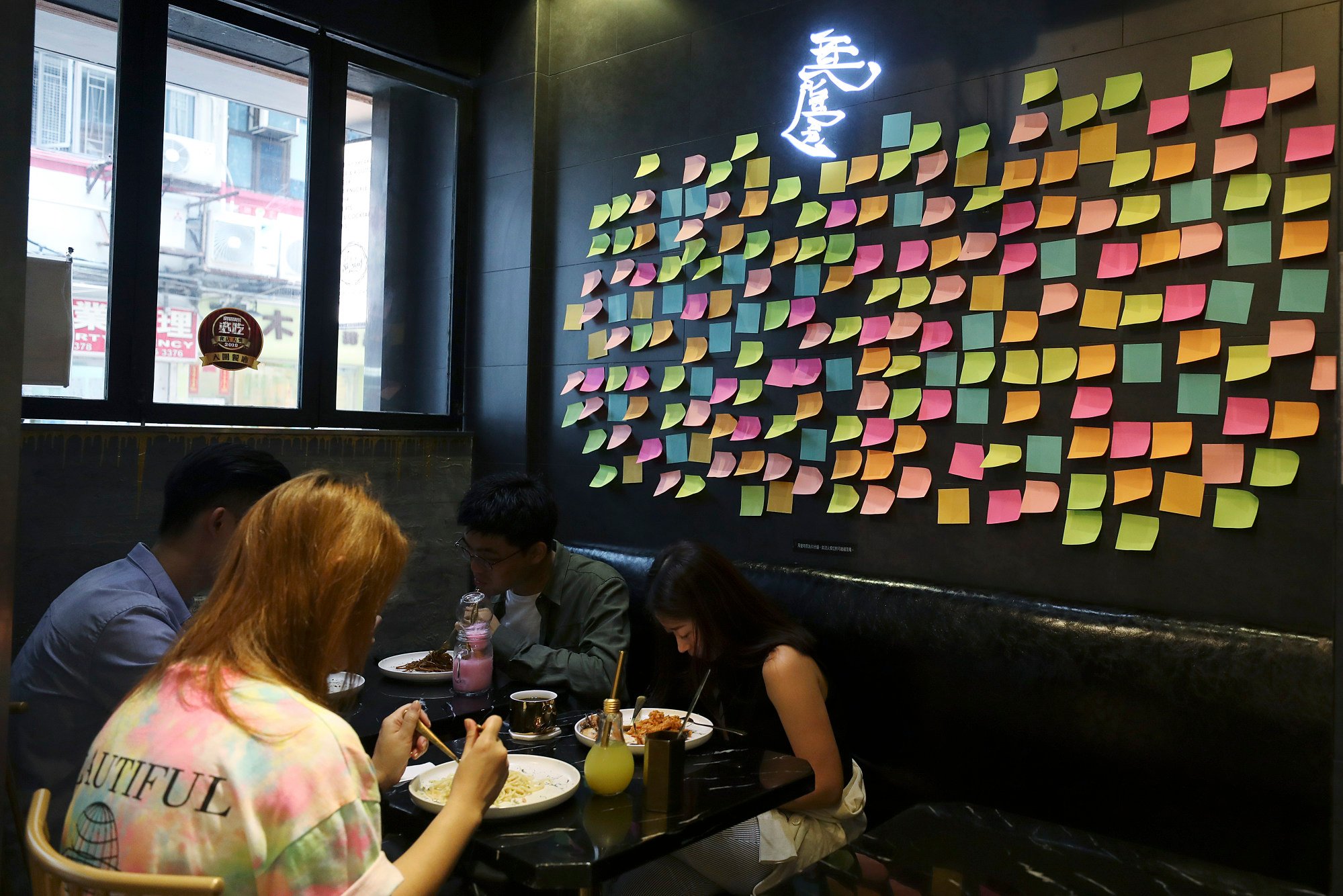
Looking back, he wondered if his yellow business had drawn too much attention for its own good at a time of uncertainty in the city.
The yellow economic circle has been reeling from a series of police actions earlier this month, after five former members of disbanded opposition party Demosisto were arrested for allegedly providing financial support to fugitive ex-lawmaker Nathan Law Kwun-chung who fled to Britain.

They included a director of the company behind the Mee app, an online directory and platform promoting yellow businesses and offering bulk purchases of festive delicacies such as mooncakes and rice dumplings.
The Post learned they were arrested for allegedly conspiring to raise funds from yellow businesses to support “anti-China” activities overseas.
Soon after the arrests, Mee was no longer available at major app stores.
Jeff, whose restaurants had appeared on Mee’s Facebook page, said: “The authorities are accusing people of ‘soft resistance’, but what actions amount to ‘soft resistance’? It’s very vague.
“We will be fine with observing a red line if there’s a clear boundary. But we don’t even have a red line to watch out for.”
Hong Kong restaurants branded ‘yellow’ if they support protests, ‘blue’ if they don’t
Yellow shops clean up their storefronts
At the height of the protests in 2019, yellow shops flaunted their political identity with political posters and “Lennon Walls” of colourful sticky notes, and distributed postcards and other materials supporting the movement.
Business owners were open about discussing their aims as opposition supporters who saw the loose coalition as a way to flex their economic muscle and sustain the political cause. There were suggestions that they should hire arrested protesters to offer support and create a cryptocurrency for the circle.
A lot changed with the arrival of the national security law and new era of political norms to ensure that only “patriots” rule the city.
While opposition figures still in Hong Kong have mostly gone silent, many yellow businesses cleaned up their storefronts, removing loud signs of their political identity.
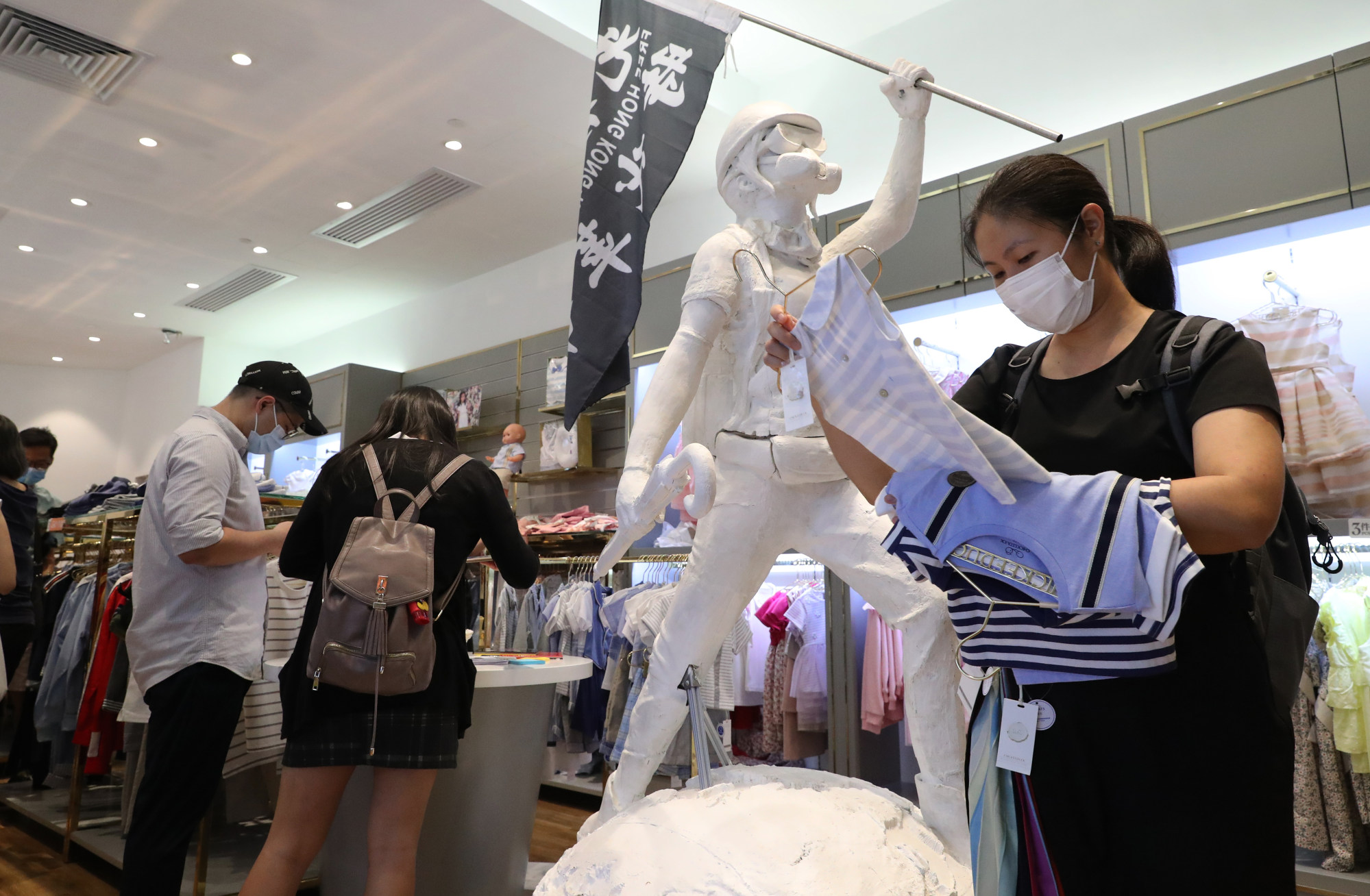
Among those that closed was 33-year-old children’s clothing chain Chickeeduck, which shut in June after losing its mainland Chinese supply chain partners.
Grocery chain AbouThai, on the other hand, cut ties with the circle in March after founder Mike Lam King-nam said in a statement the business coalition was “wrong”. The chain has more than 20 outlets in the city.
One of 47 opposition bloc members charged with subversion over an unofficial Legislative Council primary poll held in 2020, Lam pleaded guilty in January and agreed to testify for the prosecution.
Announcing his break with the yellow circle, he said in his post: “Hong Kong cannot fall into chaos, nor can it afford chaos.”
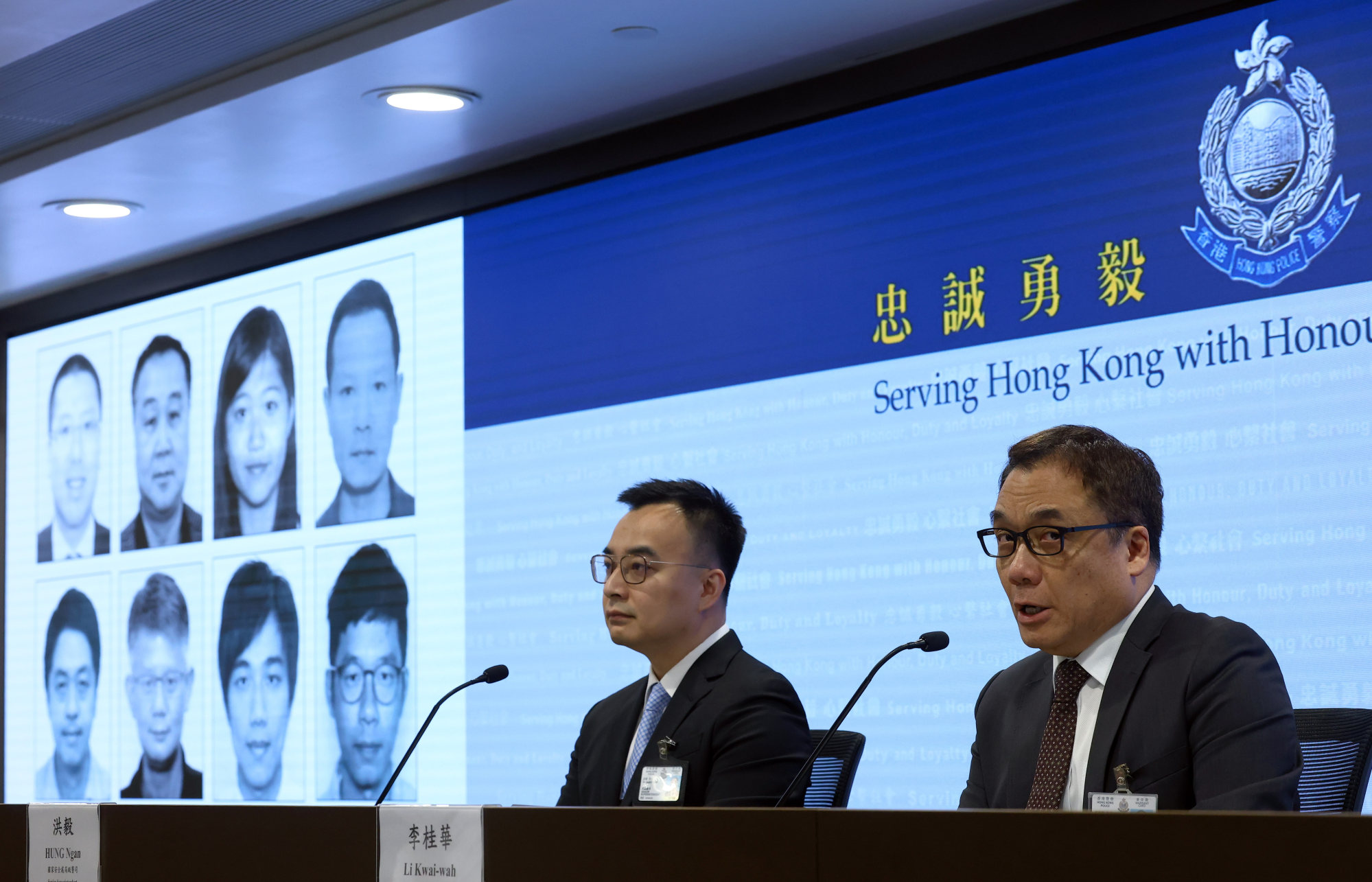
The recent arrests, accompanied by a police move to place HK$1 million (US$127,700) bounties on eight fugitive opposition figures, sowed new unease.
A Causeway Bay shop owner, who requested anonymity, said he took down his last remaining protest-related decorations and displays as soon as he heard about the arrests.
“I didn’t think it was illegal before, but after the arrests, I don’t know,” he said. “I think police might come for stores like ours next.”
Ian Fong Hok-ngai, whose shaved-noodle chain Shi Wei was listed on the Mee app, said he saw the political changes sweeping through the city and began distancing his business from the yellow economic circle last year.
“Now we just keep quiet,” he said.
Fong, who closed one of his three shops, said business was affected by the wave of emigration from the city in recent years.
“Before, we would think about opening more shops, but now we don’t know. We’re also thinking of moving out,” he said.
Security law suspects can ‘challenge’ asset freezing: Hong Kong justice minister
As of June, 5,629 businesses were still labelled as pro-democracy by the Ultimate Yellow and Blue Map, a Facebook page which lists yellow and blue shops with input by customers.
Since the recent arrests, public access to its customised Google map that located merchants of both colours has apparently been disabled, though its Lemon Map website showing the location of yellow businesses remained open as of mid July.
Commenting on “the colour economy” in September 2021, security minister Chris Tang Ping-keung told lawmakers it was “a political movement under the guise of economic terminology” that aimed to differentiate businesses by political stance and divide Hongkongers.
More recently, Hong Kong Chief Executive John Lee Ka-chiu called for extra vigilance against “soft resistance” as a threat to national security. As an example, he pointed to a recent spike in applications by people wishing to withdraw from the city’s organ donation registry.
That, too, left yellow business owners wondering where the red line lay.
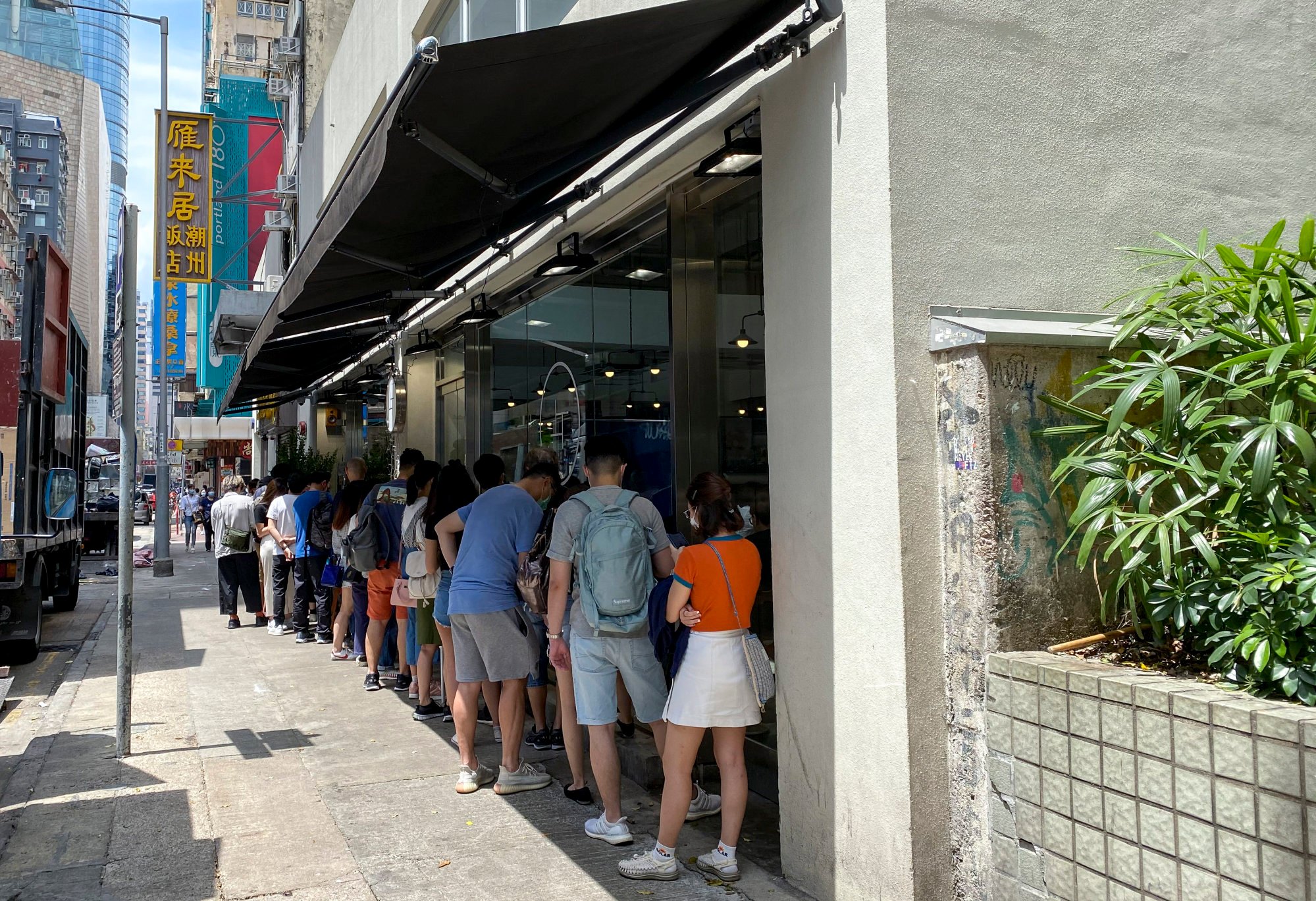
‘Not a crime to oppose the government’
So far, the authorities have not openly accused members of the yellow economic circle of breaking the law.
Professor Simon Young Ngai-man, associate law dean at the University of Hong Kong (HKU), said the Basic Law, the city’s mini constitution, continued to protect the freedom to have a political opinion and express support for a political cause.
“What we need to be more careful of now is knowingly or recklessly providing support, assistance or facility to persons who may have committed offences endangering national security,” he said.
Barrister Ronny Tong Ka-wah, a top adviser to the government as a member of the Executive Council, said merely identifying with the yellow circle would not be a crime.
“Soft resistance is about opposing the government, and it’s not a crime to oppose the government,” said Tong, who blamed the media for misinterpreting “soft resistance” as criminal behaviour.
He said displaying protest-related materials on the premises of yellow businesses might pose a risk of being accused of inciting hatred, which was a crime, but a person could be convicted only if both his intention and behaviour were proven in court.
Hong Kong 47: AbouThai founder cuts ties with ‘yellow economic circle’
Following the recent arrests, Executive Council convenor and former security minister Regina Ip Lau Suk-yee was blunt in advising retailers that it would be best to stop identifying as part of the yellow economic circle.
She said there were businesses which shipped Hong Kong food items for overseas tea parties where illegal activities occurred because the events were held to urge foreign politicians to support sanctions against the city and mainland China.
She did not elaborate, but said in a television interview: “Since there are these risks, don’t call yourself part of the yellow economic circle. It will not help your business at all.”
Asked if yellow businesses would be targeted in future operations, police said only that in any operation, they would “act on the basis of actual circumstances and according to the law”.
Unpacking Hong Kong’s national security law, 3 years on
Carrying on in ‘considerable darkness’
Leticia Wong Man-huen lamented that this was a season of “considerable darkness” but, for now, she remained determined to keep her Hunter Bookstore open.
“I hope not to be affected by these things, but many people are affected,” she said. “I’ve had customers asking me, ‘Can these books still be sold?’”
The former opposition district councillor maintains a comprehensive selection of titles, including some no longer available at mainstream bookstores.
“These books are written and published by others. Given that they are legally published, how can I judge which books are OK or not?” she said.
She has attracted critical coverage by pro-Beijing media outlets that she said actually helped business. But there were also unusually frequent checks by fire and building safety officers in the week of June 4, the anniversary of the 1989 Tiananmen crackdown in Beijing.
“It’s a bit annoying, but I think it bothered the fire department more than me,” Wong said.
While she worried about landing in trouble for selling books deemed to cross the red line, her top concern was something common with all city businesses.
“Rent determines the viability of small businesses like mine, and so far I’ve seen no sign of the authorities influencing my rent,” she said. “I can continue only if the rent doesn’t go up.”
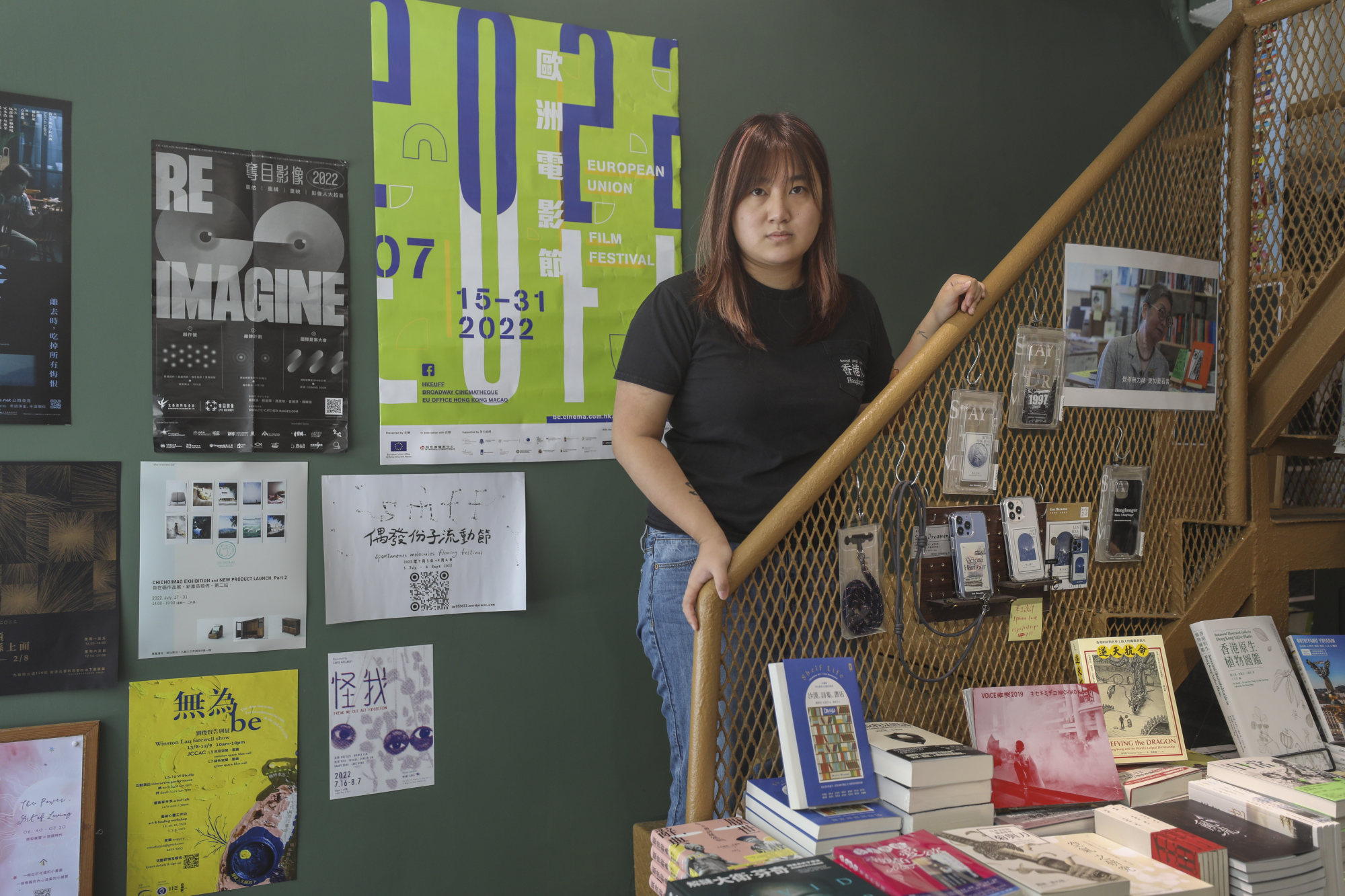
‘Consumers have short memories’
Vera Yuen Wing-han, a political economy lecturer at HKU, said the importance of political labelling had diminished with the “rapid depoliticisation” in Hong Kong since 2019.
“Consumers tend to have short memories, so the labels hold less meaning today. Ultimately, the overall quality of products and services offered by a business should be the determining factor for success,” she said.
Executive councillor Regina Ip remarked in her TV interview that some businesses were still advertising their yellow label “possibly because they are struggling” and added that restaurants could attract patrons only if the food was good.
On the online discussion board LIHKG, where opposition-friendly voices still dominate, a post that repeated Ip’s comments received mostly positive reactions.
Someone commented: “That’s pretty right.” It drew 999 upvotes from people who agreed, and only 43 downvotes.
“Black and white is conscience. Unpalatable is unpalatable,” another commenter wrote.
Bounty on Hong Kong activists and fundraiser crackdown ‘global warning’: Regina Ip
Professor Francis Lee Lap-fung of Chinese University’s school of journalism and communication saw other obstacles for yellow businesses.
The recent arrests and the impact on the Mee app would deter coordinated efforts to promote “yellow” businesses, he said, and that would make it difficult for “nothing-but-yellow” consumers to identify the shops to support.
He expected that ambiguity over what counted as a “yellow” business would gradually emerge as a problem too.
“What sets the so-called yellow and blue shops apart is actually only limited to what people know or think the attitude of the shop owner is, instead of what the shops have done,” Lee said.
“People will start to wonder what the shops have done to deserve their support.”
*Name changed at interviewee’s request
More from South China Morning Post:
- Discord in Hong Kong’s ‘yellow economic circle’ as staff disputes, mistrust add to Covid-19 business woes
- What happens to Hong Kong’s economy when businesses are split by protests into ‘blue’ vs ‘yellow’?
For the latest news from the South China Morning Post download our mobile app. Copyright 2023.





